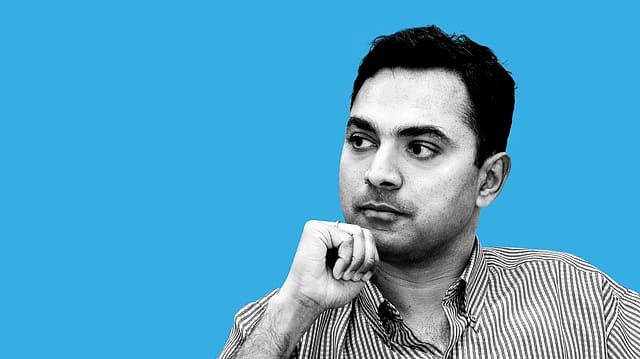Krishnamurthy Subramanian: Walking the tightrope
ADVERTISEMENT

Former chef economic adviser (CEA) Arvind Subramanian wrote in a column in July, “Every Indian economist with even a shred of policy pretension aspires to this job.” He was right; it is an opportunity for any reputed economist to directly influence policy decisions and use his academic expertise practically. The CEA is responsible for preparing the Economic Survey, advising the government on industrial and foreign trade policy, and other matters related to finance and the economy.
In December, almost six months after Subramanian’s abrupt resignation, Indian School of Business (ISB) professor Krishnamurthy Subramanian was appointed CEA. An expert in banking, corporate governance, and economic policy, K. Subramanian is also known to be one of the few advocates of Prime Minister Narendra Modi’s controversial demonetisation move.
But at a time when the country has seen a series of top-level departures— including Reserve Bank of India governor Urjit Patel and Economic Advisory Council part-time member Surjit Bhalla—for K. Subramanian to work with a government that will try to woo voters with sops before the general election while maintaining fiscal prudence won’t be easy. What are some of the challenges he is likely to face?
Ganesh Kumar Nidugala, professor of economics at the Indian Institute of Management Indore, says the recent state elections, in which the Bharatiya Janata Party lost key states like Madhya Pradesh and Rajasthan to the Congress party, have thrown up some interesting facts. They have iterated the growing divide between urban and rural voters, and the intensity of the agrarian crisis.
Nidugala says the biggest challenge before the government and K. Subramanian will be to immediately address farm distress. “The time available is very limited, it has to be done in the budget before the election code kicks in. The easiest way to do this is [to announce a] farm loan waiver, but where are the resources? The deficit is already covered,” he says.
One way for the government to boost revenues would be the stabilisation of the goods and services tax (GST). But GST collections have been falling short of targets almost every month, which means the exchequer will remain constrained. Job creation is another issue the CEA will have to address. “Studies show more or less, there is a stagnation if you see the relationship between growth and jobs creation,” Nidugala says.
Meanwhile, the twin balance-sheet problems of high corporate debt and growing non-performing assets of banks persist. Non-banking financial institutions which were supporting lending are also in disarray after the IL&FS saga. There are also global factors like uncertainty over Brexit, the U.S.-China trade war, and fears of an impending recession. K. Subramanian will certainly have his hands full as he prepares the Economic Survey
(This story was originally published in the Dec. 15 - Mar. 14 special issue of the magazine)